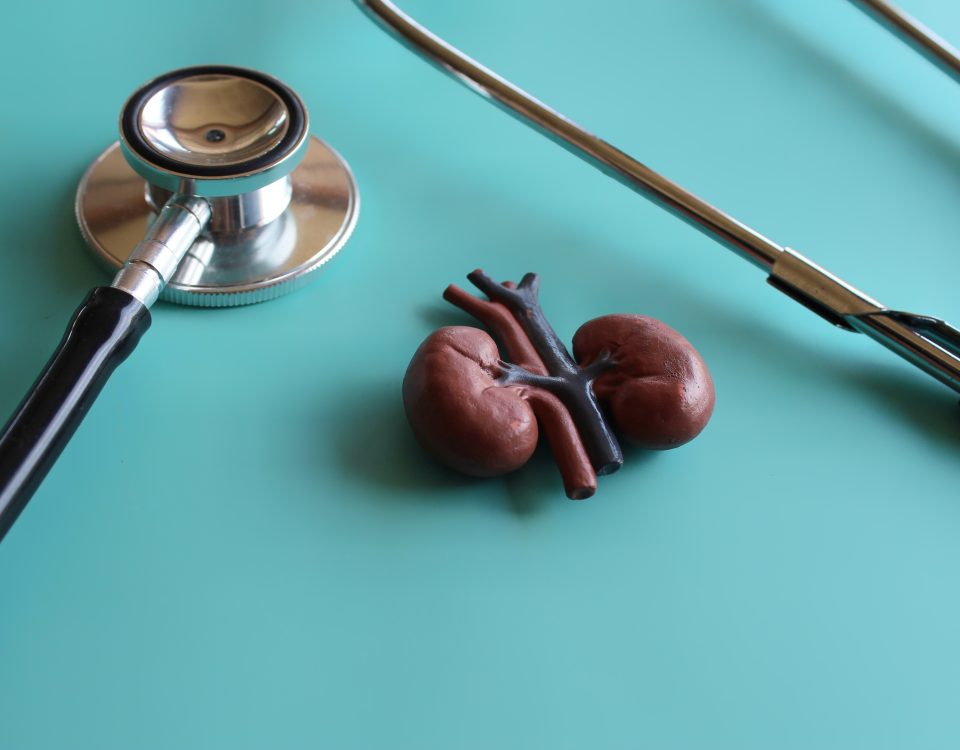7 Most Common Skin Conditions in Singapore
by: Dr. Paul Chang, General Practitioner, Regis Medical
Last updated: November 29, 2025
Skin problems are commonly associated with symptoms that cause discomfort such as redness, swelling, itching, and pain. Our skin, being the largest organ in our bodies, is constantly exposed to our surrounding environment and can be affected by environmental factors.
Skin diseases can be extremely stressful since it not only affects one’s health but also their physical appearance and self-esteem. Therefore, should you experience any of the above symptoms, it is important to have your condition diagnosed and treated. However, many different types of skin conditions share similar symptoms and may require different forms of treatment.
Jump to
Manage Common Skin Conditions with Regis Medical
Patient-first, Holistic, Dedicated Healthcare
Common skin conditions faced by Singaporeans
Eczema
Eczema is a skin condition that causes your skin to be inflamed or irritated. The most common type is atopic dermatitis, which causes the skin to be itchy, dry, and cracked. Eczema can also cause the skin to become discoloured. Eczema can be a lifelong skin condition, with flare-ups causing intense itch on inflamed patches of skin. Eczema patients may sometimes experience such intense itches that they cause bleeding from trying to scratch at the itch.
Fungal Infection
Fungal infection, also known as mycosis, is a common form of infection due to moist and damp skin conditions, and fungi coming into contact with our skin, often resulting in an itch or rash. Common types of fungal infections include athlete's foot, ringworm, and yeast infections. Common locations include in between toes, under armpits, back, and in between groin folds.
Hives
Hives, or urticaria, are allergic reactions that cause red or skin-coloured itchy bumps to appear on the skin. The symptoms include lesions, appearing in batches, that are itchy. The lesions may not always appear as bumps, and can appear as tiny spots, blotches or thin, raised lines. The severity of the itch can differ, ranging from mild to severe. This skin condition can be acute or chronic. Hives that last more than 6 weeks are considered to be chronic. The most common type of urticaria is Chronic idiopathic urticaria, where there could be no particular trigger identified. However, the Doctor may also do blood tests to ensure that there is no other underlying cause, such as blood count issues or thyroid issues.
Psoriasis
Psoriasis is a chronic inflammatory skin condition caused by the dysfunction of the immune system. The dysfunctional immune system results in a sped-up growth cycle of skin cells, leading to plagues and scales growing on the skin. Psoriasis can lead to other health conditions due to the inflammation that is caused. It is, however, not contagious. Symptoms include:
- Rashes or red patches of inflamed skin, with scales and plagues growing on the skin.
- Itch and pain that may result in the skin cracking or bleeding.
- Discolouration of the nails, and crumbling or detaching from the nail bed.
- Scales may also appear on the scalp.
Scabies
Scabies is a common skin condition that is caused by a species of mites that live and lay eggs on human skin, ‘Sarcoptes scabiei’. Patients with scabies experience intense itches and skin rashes. In severe cases, scabies can lead to bacterial infections and further complications. Scabies can also be transmitted from human to human, mostly through direct skin contact, but may also be transmitted through contact with infested items, for example, clothing and furniture.
Shingles
Shingles, also known as herpes zoster, is a skin disease that results in a painful skin rash. The disease is caused by the varicella-zoster virus, the same virus that causes chickenpox, a more widely known disease. After recovering from chickenpox, the varicella-zoster virus can remain within the body. Shingles develop when the dormant varicella-zoster virus within the body is triggered. Symptoms include pain before the appearance of the rash, that can be constant or fleeting. After a few days, fluid-filled blisters grow on top of the rash. The rash can be accompanied by fever, tiredness, or headache. These symptoms tend to disappear along with the rash.
However, in some cases, shingles can lead to complications such as Postherpetic Neuralgia. This, simply put, means that the nerves have been damaged as a result of the skin disease, causing the patient to experience pain, or sensitivity to touch. In certain rare cases, the pain may be permanent. Therefore, it is important to have yourself diagnosed and treated as soon as possible if you experience these symptoms. Most patients who receive early treatment have a low chance of developing complications.
Shingles can be prevented with Shingles vaccine - Shingrix
Warts
Warts refer to skin growth that is caused by viral skin infections, where the skin is infected by one of the viruses from the human papillomavirus (HPV) family. The type of wart is dependent on which part of the body it grows on and its appearance. Warts tend to grow on our hands and feet, since they are the parts of our body that are most exposed to contact with other people or objects. Warts are mostly spread via skin-to-skin contact with other people, or through contact with shared objects such as towels. While warts tend to be harmless, they can sometimes be painful. Warts can grow bigger as time goes by and cause discomfort, be it physically or psychologically. You also run the risk of passing the skin infection to someone else due to the contagious nature of warts. It is recommended that you seek advice from a doctor as the treatment method for warts could vary depending on the type of wart as well as your age and health. We have a separate section elaborating on Genital Warts.
Why residents in Singapore develop these skin conditions
Here are some factors unique to Singapore that could have led to the prevalence of these common skin conditions.
Weather and Climate
Singapore’s warm weather and high humidity all year long can result in varying effects on our skin’s condition, particularly due to increased sweating and sebum (oil produced by our body) production. Our tropical climate is also ideal for the growth of fungi that can cause skin infections.
Ageing Population
In 2020, Singapore saw a steady increase in the size of our elderly population, with residents over the age of 65 years old constituting 15.2% of the total resident population. Considering Singapore’s ageing population, our elderly may find themselves facing some of these skin conditions due to their skin becoming thinner and drier, leading to their skin being prone to bacterial infections.
Diabetes
Diabetes, especially poorly controlled Diabetes, results in an immunocompromised state that would put patients at greater risk of developing skin infections, whether it be bacterial or fungal.
Obesity
The prevalence of obesity is rising in Singapore, according to the National Population Health Survey done in 2020. Approximately one in ten Singaporeans were obese in 2020. Obesity is a major risk factor and is linked to many diseases such as diabetes. Obesity results in changes in the body, including alterations in skin physiology. These include a decrease in the strength of the skin and rate of wound healing, increased sebum production, and increased sweat production. When it comes to skin conditions, studies have shown an association between obesity and the promotion of inflammation in the body, increasing the risk of skin infections, including fungal infections that are common in Singapore.
Lifestyle Choices
Our lifestyles can also contribute to, or exacerbate our skin problems, considering factors such as diet, sleep, stress levels, alcohol consumption, smoking and obesity.
Diet
Certain skin conditions such as hives and rashes can be due to food allergies. A common food allergen in Singapore would be shellfish. While the allergy may not be life-threatening, mild cases of food allergy can lead to the breaking out of hives and rashes or worsen existing skin conditions.
Stress Levels & Sleep Deprivation
Singapore has been known to be a fast-paced city, with high levels of competitiveness. A recent survey done by Phillips in 2021 has revealed the poor sleeping habits of Singaporeans that have only been compounded by the COVID-19 pandemic. High-stress levels experienced in Singapore compounded by the poor quality of sleep can lead to increased cortisol levels. The hormone cortisol signals the body to produce more sebum which in turn can lead to skin problems such as acne. Stress can also be a trigger for common existing skin conditions such as psoriasis and atopic eczema, and in some cases, an aggravating factor.
Alcohol Consumption
While alcohol consumption levels remain relatively low, with regular drinkers at around 2% of the population in Singapore, the prevalence of binge drinking has continued to increase, reaching 10.5% in 2020. Alcohol, when consumed in excessive amounts, has been associated with various medical consequences, including skin diseases. Alcoholism has been linked to higher risks of developing psoriasis, particularly in more severe cases. Alcohol can be a trigger for hives and has been documented to have increased rates of skin infections as a result of nutritional deficiencies in alcoholics.
Smoking
The National Population Health Survey done in 2020 revealed the smoking prevalence in Singapore to be 10.1%. Smoking has been linked to various health complications, including skin diseases. Smoking has been associated with a higher risk of developing psoriasis, with this risk being directly related to the frequency and intensity of the smoking habit, as well as reducing the effectiveness of psoriasis treatment. Smokers have also been documented to have developed more skin-related postsurgical complications as a result of the negative effects of smoking on the body’s wound-healing capabilities.
Skin diseases can be extremely stressful since it not only affects one’s health but also their physical appearance and self-esteem. Therefore, should you experience any of the above symptoms, it is important to have your condition diagnosed and treated. However, many different types of skin conditions share similar symptoms and may require different forms of treatment.

Treatments for common skin conditions
Some common skin conditions such as mild hives can heal on their own within a few days. While others require medical attention. Conditions such as shingles can potentially cause chronic pain syndromes. It’s critical to seek treatment expediently.
Skin diseases can be extremely stressful since it not only affects one’s health but also their physical appearance and self-esteem. Therefore, should you experience any of the above symptoms, it is important to have your condition diagnosed and treated. However, many different types of skin conditions share similar symptoms and may require different forms of treatment.
Manage Common Skin Conditions with Regis Medical
Patient-first, Holistic, Dedicated Healthcare
Disclaimer:
The information on this website, including but not limited to, text, graphics, images, videos and all other materials contained on this website is for informational purposes only. None of the material is meant to replace a certified and registered Doctor's professional medical advice, diagnosis, and treatment.
No warranties or representations are given in respect of the medical information. Regis Medical, Regis Medical’s staff, and the website's operator will not be held liable if a user suffers any injury or loss after relying upon the medical information on this website.
Any devices used for technology-enhanced therapies are intended for use only for general well-being purposes or to encourage or maintain a healthy lifestyle and is not intended to be used for any medical purpose (such as the detection. diagnosis, monitoring, management or treatment of any medical condition or disease). Any health-related information provided by this device or software should not be treated as medical advice. Please consult a certified and registered Doctor for any medical advice required.
“AGEING FAMILIES IN SINGAPORE, 2010 – 2020.” Ministry of Social and Family Development, Insight Series 01/2022, 2022.
Banerji, Anna, and Canadian Paediatric Society, First Nations, Inuit and Métis Health Committee. “Scabies.” Paediatrics & child health vol. 20,7 (2015): 395-402. doi:10.1093/pch/20.7.395
Brazier, Yvette. “Hives (Urticaria): Causes, Pictures, Treatments, and Symptoms.” Medical News Today, MediLexicon International, 13 Dec. 2021, https://www.medicalnewstoday.com/articles/157260#treatment.
Charles, Alix J. “Superficial cutaneous fungal infections in tropical countries.” Dermatologic therapy vol. 22,6 (2009): 550-9. doi:10.1111/j.1529-8019.2009.01276.x
Chen, Ying, and John Lyga. “Brain-skin connection: stress, inflammation and skin aging.” Inflammation & allergy drug targets vol. 13,3 (2014): 177-90. doi:10.2174/1871528113666140522104422
Cohen, Kenneth R et al. “Presentation and management of herpes zoster (shingles) in the geriatric population.” P & T : a peer-reviewed journal for formulary management vol. 38,4 (2013): 217-27.
“Common Warts.” Mayo Clinic, Mayo Foundation for Medical Education and Research, 30 Apr. 2022, https://www.mayoclinic.org/diseases-conditions/common-warts/symptoms-causes/syc-20371125.
Felson, Sabrina. “Symptoms of Shingles: Blisters, Pain, Itching, & More.” WebMD, WebMD, 22 Apr. 2021, https://www.webmd.com/skin-problems-and-treatments/shingles/understanding-shingles-symptoms.
Gardner, Stephanie S. “Eczema: Types, Symptoms, Causes, Diagnosis, and Treatment.” WebMD, WebMD, 25 Mar. 2022, https://www.webmd.com/skin-problems-and-treatments/eczema/atopic-dermatitis-eczema.
Gardner, Stephanie S. “Psoriasis Symptoms: 5 Signs & Symptoms of Psoriasis.” WebMD, WebMD, 17 Jan. 2022, https://www.webmd.com/skin-problems-and-treatments/psoriasis/psoriasis-signs-symptoms.
Hirt, Penelope A et al. “Skin changes in the obese patient.” Journal of the American Academy of Dermatology vol. 81,5 (2019): 1037-1057. doi:10.1016/j.jaad.2018.12.070
Jaliman, Debra. “Skin Fungal Infections: Symptoms, Types, Causes, and Treatments.” WebMD, WebMD, 26 Jan. 2022, https://www.webmd.com/skin-problems-and-treatments/guide/fungal-infections-skin.
Lee, Alison Joanne, and Lynette Pei-Chi Shek. “Food allergy in Singapore: opening a new chapter.” Singapore medical journal vol. 55,5 (2014): 244-7. doi:10.11622/smedj.2014065
Liu, Stephanie W et al. “The effects of alcohol and drug abuse on the skin.” Clinics in dermatology vol. 28,4 (2010): 391-9. doi:10.1016/j.clindermatol.2010.03.024
National Skin Centre. “Common Fungal Skin Infections.” HealthHub, HealthHub, 11 Oct. 2021, https://www.healthhub.sg/a-z/diseases-and-conditions/755/fungal-infections-white-spot-ringworm-athletes-foot.
National Skin Centre. “Skin Problems in the Elderly.” HealthHub, HealthHub, 13 Dec. 2021, https://www.healthhub.sg/a-z/diseases-and-conditions/428/skin%20_problems_in_the_elderlyi_nsc
Pathak, Neha. “Hives Causes, Picture, & Treatment.” WebMD, WebMD, 22 Mar. 2021, https://www.webmd.com/skin-problems-and-treatments/guide/hives-urticaria-angioedema.
Pathak, Neha. “Postherpetic Neuralgia: Nerve Pain after Shingles.” WebMD, WebMD, 11 Aug. 2021, https://www.webmd.com/skin-problems-and-treatments/shingles/understanding-postherpetic-neuralgia-treatment.
“Psoriasis: Causes, Triggers and Treatments.” The National Psoriasis Foundation: National Psoriasis Foundation, National Psoriasis Foundation, 2022, https://www.psoriasis.org/about-psoriasis/.
“Psoriasis.” Centers for Disease Control and Prevention, Centers for Disease Control and Prevention, 18 Aug. 2020, https://www.cdc.gov/psoriasis/index.htm#:~:text=Psoriasis%20is%20a%20chronic%20autoimmune,growth%20cycle%20of%20skin%20cells.
Raharja, Antony, et al. “Psoriasis: A Brief Overview.” Clinical Medicine, vol. 21, no. 3, May 2021, pp. 170–173., https://doi.org/10.7861/clinmed.2021-0257.
Rai, Sheo S. “Philips Global Sleep Study Finds Singaporeans' Sleep Woes Compounded by Pandemic, Yet More Turning to Telehealth for Help.” Philips, 17 Mar. 2021, https://www.philips.com.sg/a-w/about/news/archive/standard/news/press/2021/20211703-philips-global-sleep-study-finds-singaporeans-sleep-woes-compounded-by-pandemic-yet-more-turning-to-telehealth-for-help.html
Robinson, Jennifer. “Warts: Pictures, Causes, Types, Removal, and Treatment.” WebMD, WebMD, 16 Sept. 2021, https://www.webmd.com/skin-problems-and-treatments/ss/slideshow-warts.
Sawada, Yu et al. “Daily Lifestyle and Inflammatory Skin Diseases.” International journal of molecular sciences vol. 22,10 (2021): 5204. doi:10.3390/ijms22105204
“Scabies.” SingHealth, SingHealth, https://www.singhealth.com.sg/patient-care/conditions-treatments/scabies.
“Scabies: Overview.” American Academy of Dermatology, American Academy of Dermatology, https://www.aad.org/public/diseases/a-z/scabies-overview.
“Shingles.” National Institute on Aging, U.S. Department of Health and Human Services, 12 Oct. 2021, https://www.nia.nih.gov/health/shingles.
“What Is Eczema?” National Eczema Association, 29 Apr. 2022, https://nationaleczema.org/eczema/#:~:text=Eczema%20(eg%2Dzuh%2DMUH,most%20common%20symptom%20of%20eczema
"Will Eczema Go Away on Its Own?” Allergy Institute, Rheumatology and Allergy Institute of Connecticut, LLC, https://www.allergyinstitute.org/blog/will-eczema-go-away-on-its-own


